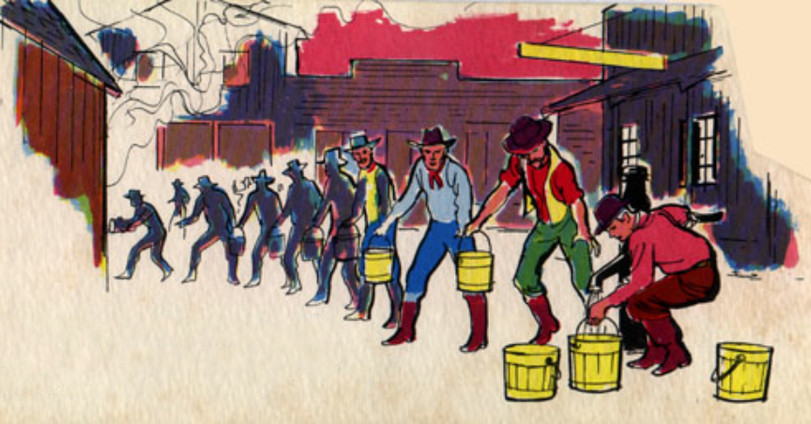Good process, bad process
A well-designed process is often a precondition to efficient knowledge work.Do you ever read a book that’s so thought provoking that it takes a week to get through a few pages? This describes my experience with A World Without Email, particularly chapter 5, which I’ve now been reading since at least Wednesday.
Today, this quote jumped out at me:
A well-designed production process isn’t an obstacle to efficient knowledge work, but is instead often a precondition.
— Cal Newport in A World Without Email
Consider the humble bucket brigade. Everyone lines up, spaced aproximately arms reach apart, and begin passing buckets of water from a well at one end of the line to the other, to put out a fire. This form of interaction cannot be conducted without a process.
Sure, everyone running around with their own bucket may be able to put out the fire. But the chaos that ensues is likely to make the process less effective, as people are constantly trying to avoid running into each other, and as three people arrive at the well at the same time, and have to wait for each other to draw their respective buckets.
For a more applicable example, to software development, I would look to Continuous Integration. But of course there are countless others.
What processes do you have in place in your work? How many of them enhance your work? How many get in the way?



